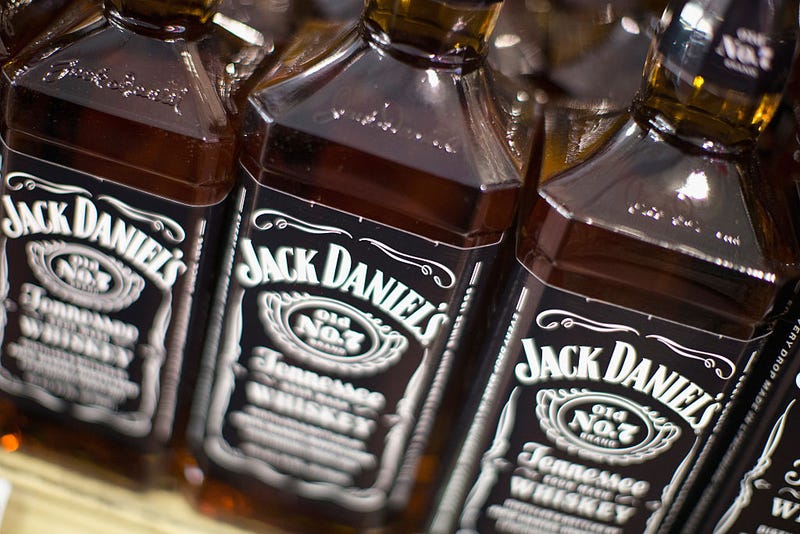
In a case that's barking at their heels, the Supreme Court is considering a case involving a company that makes a Jack Daniel’s dog toy that parodies the company's real bottle.
Legal representatives for Jack Daniel’s have asked the justices to hear the case against the dog toy manufacturer, VIP Products, CBS News reported.
The case involves trademark law, and the Supreme Court could decide as early as today whether or not they will agree to the request from the liquor company. Several other brands, like Campbell Soup, and Levi Strauss, have backed Jack Daniel’s, noting how important it is for trademark law.
The toy in question is a parody of an actual whisky bottle from the company, with the label and liquid color. However, the parody comes with new words on the label, diverting from the usual “Old No. 7 Brand” and “Tennessee Sour Mash Whiskey,” to instead say, “The Old No. 2 on Your Tennessee Carpet.”
The toy sells for around $20, and the packaging denotes that the product is not affiliated with Jack Daniel’s. The toy company’s lawyers wrote in a letter to the Supreme Court that the liquor company doesn’t know how to take a joke. It added it's “ironic that America’s leading distiller of whiskey both lacks a sense of humor and does not recognize when it — and everyone else — has had enough.”
VIP Products has gone as far as saying that Jack Daniel’s has “waged war” over the “temerity to produce a pun-filled parody” of the famous whiskey bottle, The Associated Press reported.
However, Lisa Blatt, an attorney representing Brown-Forman Corp., Jack Daniel’s parent company, shared that the parody creates confusion for customers.
“To be sure, everyone likes a good joke. But VIP’s profit-motivated ‘joke’ confuses consumers by taking advantage of Jack Daniel’s hard-earned goodwill,” Blatt wrote.
Blatt also argued that a lower court decision provides “near-blanket protection” to humorous trademark infringement. She then said that VIP Products being allowed to confuse consumers opens the door for “other funny infringers” who “can do the same with juice boxes or marijuana-infused candy,” Blatt wrote.
Blatt says that allowing for things like this creates “broad and dangerous consequences,” like with kids hospitalized recently after eating marijuana-infused products because they were packaged like candy.
The court has yet to decide on whether or not it will hear the case, but if it does, then a major precedent for trademark law could be set.


